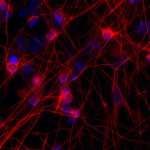In political discussions, oftentimes moral beliefs are assumed as a deciding factor for one’s political affiliation. A new study, however, suggests the opposite may be true.
According to a team of researchers at Penn State University, political affiliation may shape one’s moral belief system, impelling behavior and actions that gravitate towards a political party. The results were released in the American Journal of Political Science.
To reach these results, researchers analyzed the data of over 2,000 participants from two-panel studies and one nationally representative study. During the study, the participants were given questionnaires to assess their varying beliefs on morality: authority, care, fairness, loyalty, and purity.
In past research, it’s been theorized that moral judgments lead the path toward political affiliation. However, the new findings suggest that political attitudes may actually shape one’s moral intuitions.
Peter Hatemi, the study’s lead author, writes: “Prior theoretical models suggest the opposite causal path, that is, that moral judgments are driven by political beliefs.”
“So do moral intuitions drive political beliefs or do political beliefs drive moral intuitions?”
Based on the findings, researchers determined that political ideology was up to three times greater at predicting moral foundations, in which attitudes towards a political affiliation were more consistent over time compared to moral intuitions.
“No amount of information will change an ideologue,” Hatemi stated. “But for people who are more open politically, they can use this information and use it to help them think about their thoughts and decisions a little better.”
As a whole, the new findings provide a new outlook as to the implications political beliefs may have on what we judge as either wrong or right.
“People can be so passionate about political issues, and sometimes these are issues that don’t affect them directly. Why is that? The moral foundations theory suggests that we maybe we have these deep-seated moral compasses that are driving these beliefs, so we wanted to see if that was true.”


